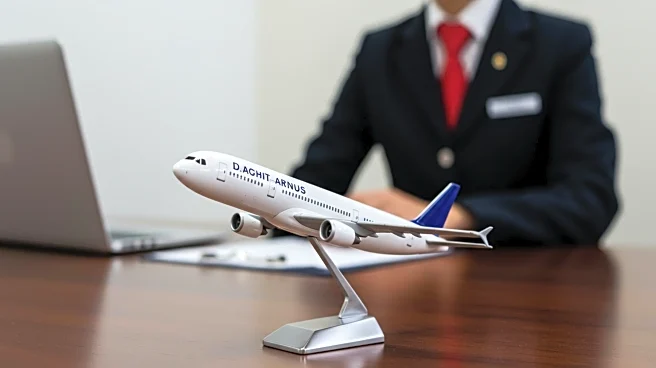What's Happening?
Air Canada, the largest airline in Canada, suspended all operations following a strike by its flight attendants. The strike, which began early Saturday, led to the cancellation of over 600 flights, affecting more than 100,000 passengers. Canadian Jobs Minister Patty Hajdu announced that the Canada Industrial Relations Board (CIRB) would order the flight attendants to return to work to secure industrial peace and protect the economy. The government intervened using Section 107 of the Canada Labor Code, which allows for arbitration in labor disputes. Air Canada had requested government intervention, citing the need to resolve the impasse with the union, which is seeking wage increases and compensation for ground work.
Why It's Important?
The strike has significant implications for the Canadian economy and travelers, as Air Canada transports approximately 130,000 passengers daily. The work stoppage has already led to substantial disruptions, including the cancellation of flights and the stranding of passengers. The intervention by the Canadian government highlights the critical role of Air Canada in the national economy and the importance of maintaining operational continuity. The strike also underscores ongoing labor tensions in the airline industry, with flight attendants demanding better compensation and working conditions.
What's Next?
The CIRB will review statements from both Air Canada and the union to decide on further intervention. Air Canada has indicated that it could take between 5 to 10 days for regular services to resume. The government and Air Canada are expected to continue negotiations with the union to reach a settlement. Meanwhile, other airlines like WestJet are adjusting their operations to accommodate affected passengers.









